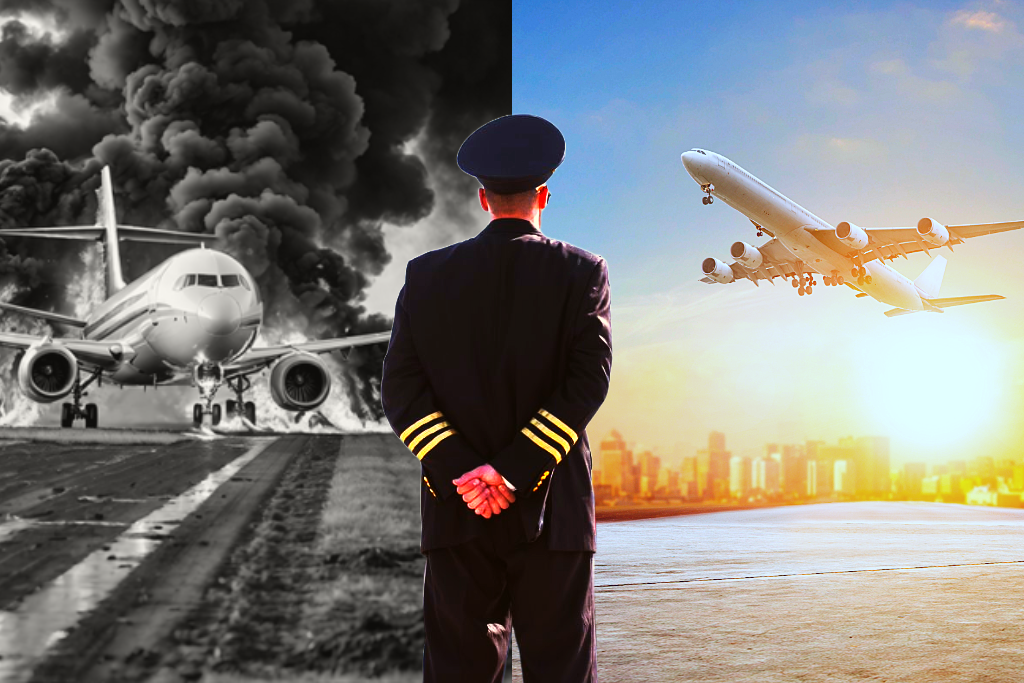
Is It Worth Becoming a Pilot? A Look at the Pros and Cons
Becoming a worthy pilot really depends on you. It relies on your passion and values.
If you genuinely love flying, adventure, and appreciate the beauty of nature, then it is worth pursuing. Only you can answer whether this path is right for you. For those with a passion for aviation and the drive to make it a career, the answer would be yes. However, for those primarily seeking a well-paid job, it may be beneficial to explore other options first.

Let’s assume you are neutral about aviation and are weighing the pros and cons of a pilot career. Let me describe both the advantages and disadvantages of pursuing this path.
Becoming a pilot is an incredible journey that brings both rewards and challenges. Flying the skies, the possibility of a satisfying career, and the chance to see the world are great reasons to pursue an aviation career. Becoming a pilot requires rigorous training, a significant financial commitment, and adapting to the distinctive pilot way of life. In this discussion, we’ll look at both the upsides and downsides of pursuing a career as a pilot and show why, for many people, the advantages make it all worthwhile.
The Perks of Becoming a Pilot –
Exciting Adventures:
Flying a plane is a thrilling experience like no other. It’s a mix of adrenaline, responsibility, and skill that brings a sense of adventure you won’t find anywhere else. Plus, no two days are the same, so it’s always exciting and never boring.
Career Fulfillment:
Successfully completing a flight, especially under tough conditions, is super rewarding. Pilots take pride in their ability to navigate tricky situations and keep everyone safe. Plus, being a pilot is a prestigious and respected profession.
Financial Stability:
Becoming a pilot involves a considerable financial commitment, but the potential monetary benefits are significant. Experienced commercial pilots working for major airlines can earn competitive salaries and enjoy job security thanks to the growing demand for pilots.
Global Perspective and Cultural Exposure:
Pilots have the incredible opportunity to travel the world, experiencing different cultures and environments. They also get to network with professionals from different countries, opening doors for international career growth.
Travel Benefits, Prestige, and Luxury Accommodations:
Pilots commonly receive discounted or complimentary flights, allowing them to easily visit new places when they are not working. This perk can also be extended to their family members, increasing the attractiveness of the profession. Furthermore, the job is held in high regard due to the level of responsibility and expertise involved, giving pilots a prestigious standing in society. In addition to these benefits, pilots often lodge in deluxe hotels during layovers, experiencing luxurious accommodations and excellent facilities as part of their occupation. These combined advantages make a career as a pilot fulfilling and accompanied by exceptional privileges.
The Downsides of Becoming a Pilot –
Investment in Training:
Pursuing a career as a pilot requires a substantial financial commitment. The expenses related to flight school, licensing, and additional certifications can feel overwhelming, often necessitating financial assistance.
Dedicated Training:
Pilot training is intense and demands commitment, discipline, and a strong drive to succeed. It involves mastering intricate technical knowledge, refining practical flying skills, and clearing numerous exams and evaluations.
Unpredictable Schedules:
Pilots often have unconventional work hours, including working during nights, weekends, and holidays. Adapting to irregular schedules may disrupt personal lives and present challenges in maintaining a healthy work-life balance.
Time Spent Away:
The nature of the job often involves spending time away from loved ones, with overnight stays in different locations. This can strain relationships and make managing personal commitments difficult.
Stress:
Pilots shoulder the responsibility for the safety of their passengers and crew, which can lead to significant stress. They must remain composed and focused during high-pressure situations, including emergencies.
Why Becoming a Pilot Is Still Worth It?
Becoming a pilot comes with challenges, but for those who love aviation, the rewards far outweigh the difficulties. The thrill of flying, the sense of accomplishment, and the opportunity to establish a respected and financially secure career serve as powerful motivators. The demands of the pilot’s lifestyle are a fair trade for the adventure and excitement the job brings, with the chance to travel the world and immerse oneself in new cultures, turning the career into more than just a job—it becomes a way of life.
Additionally, the financial investment in training is often repaid through competitive salaries and job security. As pilots gain experience, they have the potential to move up to higher-paying positions, further fueling their passion.
Lastly, the personal and professional growth that comes from overcoming the challenges of pilot training and handling the complexities of the job is truly invaluable, leading to the development of strong problem-solving skills, resilience, and the ability to perform under pressure.
